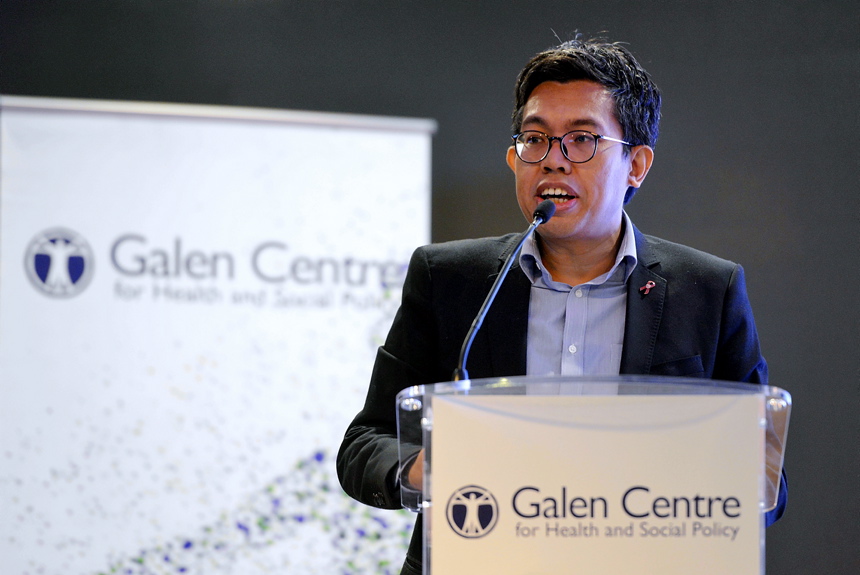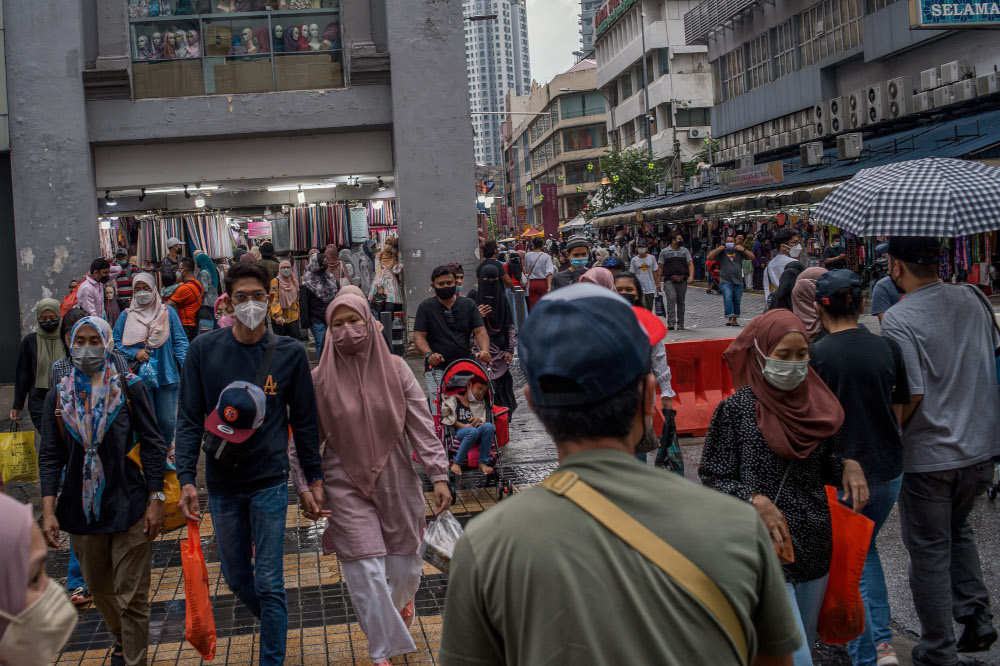KUALA LUMPUR, April 24 — Two years on and with Covid-19 seemingly winding down, many in Malaysia are eager to see the removal of the preventive measures such as perpetual masking that have been a constant throughout the pandemic.
With primary and booster doses of Covid-19 vaccines readily available in most of the world, many believe their countries have done what they reasonably can to protect against the unprecedented pandemic.
Some countries such as Denmark, for example, have removed coronavirus-related requirements regarding testing or quarantining when entering the Nordic country regardless of vaccination status; others like the United Kingdom have lifted all remaining Covid-19 restrictions including mask wearing.
But Malaysia has been slower to follow suit even with its comparatively lower infection numbers; Health Minister Khairy Jamaluddin previously said Putrajaya would periodically review the country’s Covid-19 standard operating procedure and relax them only when appropriate.
Malay Mail polled several medical experts on whether Malaysia’s slow approach towards lifting its Covid-19 restrictions would be the best way forward or whether the country was being overly cautious when even neighbouring Singapore has significantly dialled back its own restrictions.
Medical Practitioners Coalition Association of Malaysia president Dr Raj Kumar Maharajah said it was good to take the safer route forward as Covid-19 remained unpredictable and was still a global pandemic.
“We have to always be alert and careful. Most of us are fully vaccinated and boosted, but there are still many who haven’t gotten their booster shots, or even been vaccinated against the Covid-19 virus.
“...and it is very risky if we are going to go mask free because the virus is still mutating and we are still getting (different) variants of Covid-19. We don’t know which variant is going to be fatal and cause a lot of deaths,” he told Malay Mail.
Dr Raj suggested that the government should maintain the mandatory masks and social distancing rules to keep Malaysians safe.
“I think we best keep wearing masks and maintaining social distance, because if the Health Ministry advises people to remove (the mask)... the people are innocent, they don’t know any better. They’ll just take the advice.
“Personally for me, if the ministry tells people they can choose to not wear masks anymore, I would still wear the mask. That’s my personal decision because I’m still very fearful,” he said.
Echoing Dr Raj, Chief executive officer of the Galen Centre for Health and Social Policy Azrul Mohd Khalib said lifting Covid-19 restrictions too hastily would invariably result in the increase in hospitalisation rates and deaths.

He said this was evident from observing countries that lifted their Covid-19 restrictions early, and said the question remained if Malaysia’s health system could handle any wave that came its way.
While widely available vaccines have taken much of the pressure off Malaysia’s health infrastructure, Azrul said continuing with easy precautions would further minimise any potential risks of new Covid-19 variants overwhelming the system.
“They may be able to evade the protection currently provided by existing vaccines but we cannot risk being complacent. Being complacent on Covid-19 will cost lives,” he told Malay Mail.
Malaysia Medical Gazette managing editor Dr Khoo Yoong Khean warned that while Malaysia appeared to have weathered the Omicron wave, this did not mean there was no longer any remaining threat.
However, Dr Khoo told Malay Mail that these factors justify slightly modifying the country’s Covid-19 regulations, but Putrajaya must be wary not to give a false sense of security to Malaysians.
“It should be situation dependent, so some form of changes — for example reducing MySejahtera usage for contact tracing, removal of the pre-departure or on arrival PCR or RTK testing or even taking off masks outdoors in parks or open walkways — can be introduced safely.
“But there also needs to be continuous communication and engagement on other measures like getting your boosters, encouraging parents to bring their kids for vaccination, engaging industries and employers to improve ventilation and provide support in terms of working from home,” he said.
He said that while Malaysia cannot compare its Covid-19 situation with other countries as its pandemic pattern is different, their experiences should be taken as a cautionary tale and must learn from them.
“...what are the factors that lead to another outbreak, how effective is digital contact tracing now, what is the updated evidence around therapeutics, vaccines or non-pharmacological interventions.
“So I think there is no right or wrong but every move or decision should be based on current evidence and current situation.
“The government should also communicate these changes effectively and remind people that regulations may change in the future, depending on, again, current evidence and situation,” he said.
On Friday, Khairy said the cautious approach meant Malaysia would lag behind other countries in easing the preventive measures, but would allow the nation to avoid making the same mistakes as others.
Yesterday, Prime Minister Datuk Seri Ismail Sabri Yaakob said that his Cabinet is discussing relaxing three key measures in the standard operating procedure for the prevention of Covid-19, which would be announced soon.
Ismail Sabri said the three key measures involved the wearing of face masks, scanning of the MySejahtera application when entering premises and Covid-19 detection tests.
He said these were still being assessed and discussed at the Ministry of Health (MoH) level.

















.JPG)


